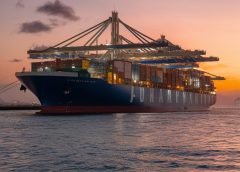Beijing Targets $100 Billion in Imports from Africa by 2022 and $300 Billion by 2035
Trade between China and Africa witnessed dynamic growth in the first quarter of 2024, with China’s imports from the African continent registering a notable increase.
According to data released by the General Administration of Customs of China in April, China’s imports from Africa surged by 8% during the first three months of the year, reaching $29.42 billion. This growth is driven by strong demand for minerals, particularly metals used in the production of electric vehicle batteries, as well as rising commodity prices.
China’s policy of zeroing tariffs on 98% of products imported from 21 African countries is also playing a crucial role in this growth. These countries include Ethiopia, Guinea, Mozambique, Rwanda, and Togo.
Aiming to address a structurally China-favorable trade surplus, this measure is intended to rebalance trade between the two parties. The target set by Chinese President Xi Jinping at FOCAC 8 in Dakar in November 2021 is clear: to increase China’s imports from Africa to $100 billion per year by 2022 and $300 billion per year by 2035.
In addition to the import surge, China’s exports to Africa also experienced moderate growth of 4.4% in the first quarter of 2024, reaching $41.4 billion. Total trade between the two regions thus amounted to $70.86 billion over this period, reflecting a 5.9% increase compared to 2023.
This trade dynamic illustrates the growing economic ties between China and Africa. Finished products such as textiles, machinery, and electronics constitute the bulk of China’s exports to the African continent, while China’s imports from Africa are primarily composed of raw materials, including crude oil, copper, cobalt, and iron ore.
China’s commitment to intensifying its purchases of African agricultural products is expected to contribute to further diversification of trade and a gradual reduction of the China trade surplus. Sino-African cooperation in this area is thus expected to intensify in the coming years, fostering economic development and job creation on the African continent.






